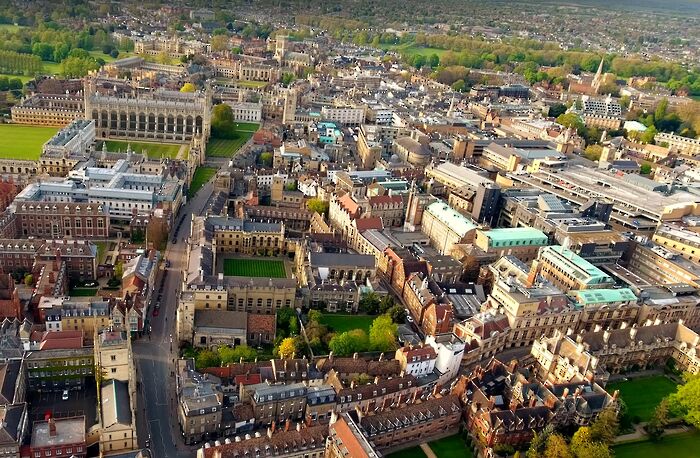High Court rejects environmental challenge to OxCam Expressway
The claim, brought forward by Berks, Bucks and Oxon Wildlife Trust, criticised the government’s failure to assess the environmental impact of the project

The High Court has refused permission for Berks, Bucks and Oxon Wildlife Trust’s (BBOWT) claim against the government regarding the Oxford to Cambridge Expressway. The claim, issued in the High Court in November 2018, challenged the government's failure to commission a Strategic Environmental Assessment (SEA) or a Habitats Regulation Assessment (HRA) as part of the investment project in the “Growth Corridor” which includes the Oxford-Cambridge Expressway.
The Expressway will be a direct motorway link between Oxford and Cambridge. In development since 2016, the Expressway is part of a £5.5bn project which would see major developments in the “brain-belt”, the area between Oxford and Cambridge. An "ambitious integrated programme of infrastructure, housing, business investment and development” was announced in the government's 2017 Autumn Budget for the Cambridge - Milton Keynes - Oxford corridor, and will also include the building of one million homes by 2050.
BBOWT, which manages 88 nature reserves across Berkshire, Buckinghamshire and Oxfordshire and has a membership of 52,000, has the backing of The Wildlife Trusts nationally as well as support from the River Thame Conservation Trust in its challenge to the government. Witness statements supporting their case have been provided by organisations such as the Royal Society for the Protection of Birds and the Campaign to Protect Rural England. In November 2018, the Trust launched a fundraising page to help cover legal fees, raising over £33,000 from public donations.
Green Party MEP for South East England Keith Taylor also challenged the plans in October 2018, expressing concerns due to the potential environmental impact and the lack of public consultation.
Following the High Court decision, Matthew Stanton, Head of Planning, Policy and Advocacy at BBOWT commented: “We do not regard this as the end of the legal process, and we will apply for the court to revisit this decision at an oral hearing. We are resolute in our determination to protect wildlife from the impact of the Oxford to Cambridge Expressway.
“A Strategic Environmental Assessment is required under European law for schemes that impact on the environment such as this. This means the true environmental impact has not been properly considered, and the public has been denied the opportunity to fully scrutinise the implications of the scheme.
“The government has committed to leave the environment in a better state than they found it, but it is unclear how the Expressway and its potential impact on protected habitats is compatible with this ambition.”
Tessa Gregory, partner at the law firm Leigh Day which represented BBOWT, said that the High Court decision is “not the end of the process. We will now renew the application for permission to be heard at an oral hearing, where the grounds can be argued in front of a judge and we hope the decision will be overturned.”
In a report released on 12th September 2018, Highways England stated: “We are committed to finding solutions that have the least impact and avoid, minimise or mitigate the impact on the natural environment.”
The National Infrastructure Commission, who released a report in 2017 calling for such investment in the “brain-belt” area, recommend that the transport links should be completed by 2030. Secretary of State for Transport Chris Grayling has publicly backed the project, arguing that improved road connections would ease congestion and therefore improve air quality.
But Steve Dawe, Communications Officer at No Expressway Alliance, highlighted the potential for further legal challenges and delays in responding to the BBOWT’s setback: "We have yet to see any consultation on the principle of having this road or its associated development corridor. It is quite likely other legal challenges will follow, especially when the route is finally chosen after consultation on routes in the Autumn. The Expressway is unacceptable on any route."
Correction, on Saturday 26th January at 14.44: This article was amended to note that the planned Expressway is a motorway between Oxford and Cambridge, rather than a rail link
 Comment / Cambridge students are too opinionated 21 April 2025
Comment / Cambridge students are too opinionated 21 April 2025 Comment / Cambridge’s tourism risks commodifying students18 April 2025
Comment / Cambridge’s tourism risks commodifying students18 April 2025 Interviews / Meet the Chaplain who’s working to make Cambridge a university of sanctuary for refugees20 April 2025
Interviews / Meet the Chaplain who’s working to make Cambridge a university of sanctuary for refugees20 April 2025 News / News in brief: campaigning and drinking20 April 2025
News / News in brief: campaigning and drinking20 April 2025 Lifestyle / Which coffee are you?20 April 2025
Lifestyle / Which coffee are you?20 April 2025






